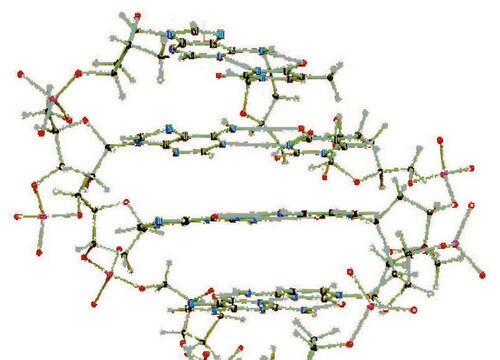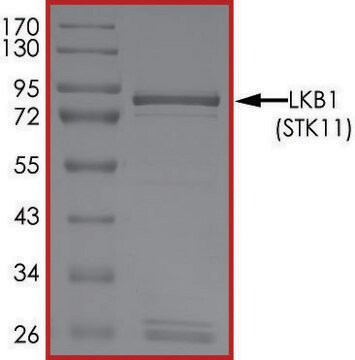14-840-M
AMPK (α1, β1, γ1) Protein, active, 10 µg
Active, recombinant, human AMPK (α1, β1, γ1) holoenzyme, comprised of full length N-terminal 6His-tagged AMPKα1, full length untagged AMPKβ1 & full length untagged AMPKγ1. For use in Kinase Assays.
Synonym(s):
AMPK kinase
Sign Into View Organizational & Contract Pricing
All Photos(1)
About This Item
UNSPSC Code:
12352202
eCl@ss:
32160405
NACRES:
NA.32
Recommended Products
biological source
human
Quality Level
recombinant
expressed in E. coli
form
liquid
shelf life
6 mo.
mol wt
Mw 30 kDa (AMPKß1)
Mw 38 kDa (AMPKγ1)
Mw 64 kDa (AMPKα1)
manufacturer/tradename
Upstate®
technique(s)
activity assay: suitable (kinase)
solubility
water: soluble
GenBank accession no.
storage temp.
−70°C
Gene Information
human ... PRKAB1(5564)
General description
Research area: Cell Signaling
Product Source: Expressed in E. coli cells and activated in vivo.
Protein Target: AMPK (α1, β1, γ1)
Target Sub-Family: CAMK
Recombinant, human AMPK (α1, β1, γ1) holoenzyme, comprised of full- length N-terminal 6His-tagged AMPKα1, full length untagged AMPKβ1 and full length untagged AMPKγ1. The AMPK α catalytic subunit in mammals is encoded by α1 and α2, two β genes β1 and β2 and three γ subunit genes γ1, γ2, and γ3.
Product Source: Expressed in E. coli cells and activated in vivo.
Protein Target: AMPK (α1, β1, γ1)
Target Sub-Family: CAMK
Recombinant, human AMPK (α1, β1, γ1) holoenzyme, comprised of full- length N-terminal 6His-tagged AMPKα1, full length untagged AMPKβ1 and full length untagged AMPKγ1. The AMPK α catalytic subunit in mammals is encoded by α1 and α2, two β genes β1 and β2 and three γ subunit genes γ1, γ2, and γ3.
Application
For use in Kinase Assays.
Research Category
Metabolism
Apoptosis & Cancer
Metabolism
Apoptosis & Cancer
Research Sub Category
Diabetes
Obesity
Metabolic Disorders
Diabetes
Obesity
Metabolic Disorders
Biochem/physiol Actions
Under conditions of nutrient scarcity, AMPK functions as a metabolic checkpoint and inhibits cellular growth. Upon activation, AMPK promotes glucose uptake and fatty acid oxidation thereby reducing energy-consuming processes like protein and lipid synthesis. Furthermore, AMPK regulates autophagy and mitophagy. It also facilitates catabolic pathways to generate more ATP as a response to decreased ATP production.
Packaging
Also available in 250µg size as catalog # 14-840M - Call for pricing and availability.
Quality
Routinely evaluated by phosphorylation of substrate peptide
Physical form
Cobalt-agarose
Storage and Stability
6 months at -70°C
Other Notes
For Specific Activity data, refer to the Certificate of Analysis for individual lots of this enzyme.
Legal Information
GenBank is a registered trademark of United States Department of Health and Human Services
UPSTATE is a registered trademark of Merck KGaA, Darmstadt, Germany
Disclaimer
Unless otherwise stated in our catalog or other company documentation accompanying the product(s), our products are intended for research use only and are not to be used for any other purpose, which includes but is not limited to, unauthorized commercial uses, in vitro diagnostic uses, ex vivo or in vivo therapeutic uses or any type of consumption or application to humans or animals.
Signal Word
Warning
Hazard Statements
Precautionary Statements
Hazard Classifications
Skin Sens. 1
Storage Class Code
12 - Non Combustible Liquids
WGK
WGK 2
Flash Point(F)
Not applicable
Flash Point(C)
Not applicable
Certificates of Analysis (COA)
Search for Certificates of Analysis (COA) by entering the products Lot/Batch Number. Lot and Batch Numbers can be found on a product’s label following the words ‘Lot’ or ‘Batch’.
Already Own This Product?
Find documentation for the products that you have recently purchased in the Document Library.
Our team of scientists has experience in all areas of research including Life Science, Material Science, Chemical Synthesis, Chromatography, Analytical and many others.
Contact Technical Service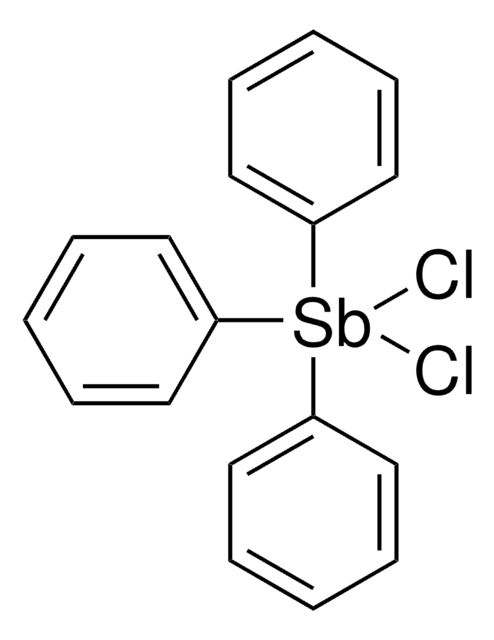
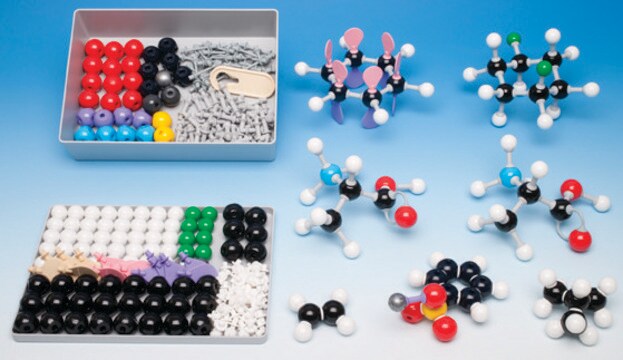

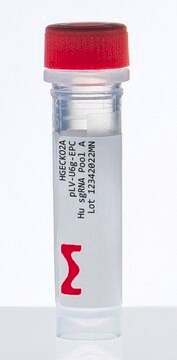
![(Acetonitrile)[(2-biphenyl)di-tert-butylphosphine]gold(I) hexafluoroantimonate](/deepweb/assets/sigmaaldrich/product/structures/216/222/abe04540-8e4f-41fc-bcb8-2e1e0f25c8b9/640/abe04540-8e4f-41fc-bcb8-2e1e0f25c8b9.png)



